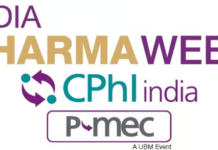- Durvalumabis the only immunotherapy approved for patients with unresectable Stage III Non-Small Cell Lung Cancer (NSCLC)
- Durvalumabwas granted US FDA ‘breakthrough therapy’ designationon July 31, 2017.
Bengaluru, June 25, 2018: AstraZeneca Pharma India Limited(AZPIL)today announced that it has received Import & Market permission for Durvalumab(ImfinziTM) in India by the Drug Controller General of India (DCGI). The receipt of this permission paves way for the launch of durvalumab(ImfinziTM) in India, subject to the receipt of further related statutory approvals and licenses.
Durvalumab provides a treatment option for patient with locally advanced, unresectable Non-Small Cell Lung Cancer (NSCLC) and metastatic urothelial carcinoma.
Durvalumabis a patented product of AstraZeneca global.
Gagan Singh, Managing Director, AstraZeneca Pharma India Limited said, “The import and market permission for Durvalumabfor unresectable stage III Non-Small Cell Lung Cancer (NSCLC) and locally advanced or metastatic urothelial carcinoma is a significant milestone for patients who have currently limited treatment options.In India, approximately one third of patients with NSCLC are present with Stage III disease and we are excited to bring the first immunotherapy into this setting for patients.”
AstraZeneca’s Durvalumabis a part of a new class of immunotherapy drugs known as ‘checkpoint inhibitors’. Some forms of bladder and lung cancer use the PD-L1 protein to evade the immune system. Durvalumab, is a human monoclonal antibody that binds to PD-L1 and blocks the interaction of PD-L1 with PD-1 and CD80, countering the tumour’s immune-evading tactics and releasing the inhibition of immune responses.
About Stage III NSCLC and Urothelial cancer
NSCLC accounts for about 85% of all lung cancers (1). In general, lung cancer is the most common cancer in Indian men and accounts for most number of deaths (13.7%) from cancer (2).Incidence of Stage III NSCLC in one study in India was found to be 28.7 %, representing approximately one-third of NSCLC incidence (3).
Stage III (locally advanced) NSCLC is commonly divided into three sub-categories (IIIA, IIIB and IIIC), defined by how much the cancer has spread locally and the possibility of surgery. This differentiates it from Stage IV disease, when the cancer has spread (metastasised) to distant organs.
The majority of Stage III NSCLC patients are diagnosed with unresectable tumours. Until now, the current standard of care has been chemotherapy and radiation therapy, followed by active surveillance to monitor for progression. The prognosis remains poor and long-term survival rates are low.
Urothelial cancer makes up more than 90% of all bladder cancer cases and affects several parts of the urinary tract, including the renal pelvis, ureters, bladder and urethra. Urothelial cancer is one of the most common urological malignancies(4).
Corporate Comm India(CCI Newswire)

























